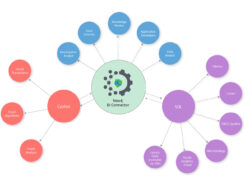What Is Personal Finance?
In the hustle and bustle of our daily lives, one term that frequently pops up but often remains misunderstood is “personal finance.” Simply put, personal finance refers to the management of one’s financial resources. It encompasses a broad spectrum of activities, including earning, spending, saving, and investing money. Personal finance is not just about the numbers; it’s a holistic approach to achieving financial well-being.
When we delve into the world of personal finance, the journey typically begins with understanding individual financial goals. These can range from short-term objectives like saving for a vacation to long-term ambitions such as retirement planning. Personal finance is essentially the roadmap that guides individuals in making informed decisions to meet these financial aspirations.
Key Takeaways:
- Many schools lack courses on money management, making it crucial to seek financial education through freely available online resources like articles, courses, blogs, podcasts, or books.
- Personal finance encompasses income, spending, savings, investments, and protection. A holistic approach involves addressing each of these core areas to achieve financial well-being.
- Smart personal finance entails strategic planning, including budgeting, creating emergency funds, debt repayment, judicious use of credit cards, and saving for retirement. Diverse strategies contribute to overall financial success.
- Discipline is vital in managing personal finances, but it’s equally important to recognize instances where straying from conventional guidelines may be necessary. Balancing adherence to principles with flexibility enhances financial decision-making.
The Importance of Personal Finance
Now, you might wonder, why is personal finance so crucial. Well, the significance lies in its ability to empower individuals to take control of their financial destinies. Let’s explore the pivotal aspects that highlight the importance of personal finance.
Firstly, personal financial planning is at the heart of this concept. It involves setting realistic goals, understanding one’s income and expenses, and devising a strategy to achieve financial success. Whether it’s creating an emergency fund or planning for major life events like buying a house or funding education, personal financial planning lays the foundation for a secure financial future.
Another integral component of personal finance is the personal budget. A budget is essentially a roadmap for managing your money. It helps individuals allocate funds to various expenses, ensuring that they live within their means. By tracking income and expenditures, a personal budget acts as a tool to prevent overspending and encourages disciplined financial habits.
Define finance. Finance, in a broader sense, refers to the study of how individuals, businesses, and governments allocate resources over time. In the context of personal finance, it involves managing one’s financial resources, understanding the principles of investing, and making informed decisions to achieve financial goals.
Personal financial management is the glue that holds all these elements together. It involves the day-to-day activities of managing money, such as paying bills, saving, and investing. Effective personal financial management requires a balance between spending and saving, making prudent investment choices, and adapting to changes in financial circumstances.

Areas of Personal Finance
In the intricate web of personal finance, individuals encounter various aspects that collectively shape their financial well-being. These crucial elements can be broadly categorized into five key areas, each playing a distinctive role in the financial landscape.
1. Income:
Income serves as the bedrock of personal finance. It encompasses all the money flowing into an individual’s coffers, whether from a salary, freelance work, or other sources. Understanding the dynamics of income is pivotal for effective financial management. This involves not only the amount of income but also its stability and consistency.
To optimize this area, individuals need to explore avenues for increasing their income, be it through career advancements, side hustles, or passive income streams. Simultaneously, prudent budgeting ensures that income is allocated efficiently to cover essential expenses while leaving room for saving and investing.
2. Spending:
Spending is the next crucial aspect, and it’s where many individuals face challenges. Managing spending involves creating and adhering to a budget that aligns with financial goals. A well-structured budget not only tracks daily expenses but also allocates funds for savings, investments, and debt repayment.
Monitoring spending habits allows individuals to identify areas where adjustments can be made, fostering financial discipline. Cutting unnecessary expenses and distinguishing between needs and wants are fundamental steps toward achieving a balanced financial life.
3. Saving:
Saving is akin to building a financial safety net. It involves setting aside a portion of income for future needs, emergencies, and long-term goals. The importance of saving cannot be overstated, as it provides a buffer against unforeseen circumstances and paves the way for financial security.
There are various forms of savings, including short-term savings for immediate needs and long-term savings for major life events like buying a home or funding education. Establishing an emergency fund is a critical first step in the saving journey, offering peace of mind in times of unexpected financial challenges.
4. Investing:
Investing is the engine that drives wealth accumulation over the long term. While saving preserves capital, investing aims to grow it. Understanding the basics of investing, such as risk tolerance, asset allocation, and the power of compounding, empowers individuals to make informed investment decisions.
Diversifying investments across different asset classes, such as stocks, bonds, and real estate, mitigates risk and enhances the potential for returns. Consistent and disciplined investing, coupled with a long-term perspective, can help individuals build wealth and achieve financial goals like retirement or financial independence.
5. Protection:
Protecting one’s financial well-being involves mitigating risks through insurance and other risk management strategies. Life insurance, health insurance, and property insurance are crucial components of financial protection. They act as a shield, providing financial support in the face of unexpected events such as illness, accidents, or property damage.
Furthermore, having an estate plan, including wills and powers of attorney, ensures that individuals have control over their assets and decision-making even in unforeseen circumstances. Protection is the final layer that safeguards the foundation built through income, spending, saving, and investing.
Personal Finance Services
Various financial planning services are categorized under five crucial areas. Numerous businesses provide these services to assist clients in meticulous financial planning and management. The comprehensive spectrum includes:
- Wealth Management
- Loans and Debt
- Budgeting
- Retirement
- Taxes
- Risk Management
- Estate Planning
- Investments
- Insurance
- Credit Cards
- Home and Mortgage
Personal Finance Strategies
1. Know Your Income:
Understanding your income is more than just knowing your salary. It involves a comprehensive look at your take-home pay after taxes and deductions. Dive into the details of your paycheck to grasp the full picture of your financial resources. This awareness serves as the compass guiding your financial decisions, ensuring you navigate toward a stable and secure future.
2. Devise a Budget:
Creating a budget isn’t just about restricting spending; it’s about empowerment. The 50/30/20 budgeting method offers a roadmap for financial success. By categorizing your income into essentials, discretionary spending, and future goals, you gain control over your finances. Embrace user-friendly budgeting apps like YNAB and Mint, putting the power to manage your money at your fingertips.
3. Pay Yourself First:
Paying yourself first isn’t a luxury; it’s a necessity for financial resilience. By allocating a portion of your income to savings, you create a safety net for unexpected expenses. The recommended 20% savings rule isn’t just a number; it’s a strategy for long-term financial well-being. As you fill your emergency fund, continue directing this percentage towards goals like retirement and homeownership.
4. Limit and Reduce Debt:
Managing debt isn’t a one-size-fits-all concept. While borrowing is sometimes necessary, understanding the impact of debt on your financial landscape is crucial. Explore repayment strategies, consider consolidating high-interest debts, and embrace opportunities to minimize interest payments. Taking control of your debt allows you to redirect funds towards wealth-building endeavors.
5. Only Borrow What You Can Repay:
Credit cards can be a double-edged sword. Responsible use establishes a credit history and aids in budgeting, while misuse can lead to debt traps. Embrace the power of credit wisely by paying off balances monthly and keeping credit utilization in check. Understanding the nuances of credit empowers you to use it as a financial tool rather than a burden.
6. Monitor Your Credit Score:
Your credit score is more than just a number; it’s a reflection of your financial health. Regular monitoring allows you to spot discrepancies, address issues promptly, and nurture a positive credit history. Utilize available tools and services to keep tabs on your credit score, To secure a lease, mortgage, or any financing, you need a strong credit report. Different credit scores exist, with the FICO score being the most widely used.
Factors that determine your FICO score include:
- Payment history (35%)
- Amounts owed (30%)
- Length of credit history (15%)
- Credit mix (10%)
- New credit (10%)
FICO scores are calculated from 300 to 850. Here’s how your credit is rated:7
- Exceptional: 800 to 850
- Very good: 740 to 799
- Good: 670 to 739
- Fair: 580 to 669
- Very poor: 300 to 579
7. Plan for Your Future:
Planning for your future is a multifaceted endeavor that involves safeguarding your assets, ensuring your wishes are honored, and preparing for the financial demands of retirement. To secure your estate, it’s essential to create a will and, if necessary, establish trusts tailored to your needs. Additionally, a comprehensive review of insurance policies—covering auto, home, life, disability, and long-term care—can help reduce premiums while ensuring your family’s financial well-being through life’s major milestones. Crucial documents such as a living will and healthcare power of attorney can save your next of kin significant time and expense during times of illness or incapacity. As retirement approaches faster than one might expect, experts recommend setting aside funds early, taking advantage of tax-advantaged plans like IRAs, 401(k)s, or 403(b)s. Teaching financial literacy to your children, emphasizing the value of money and prudent financial habits, lays a foundation for their future. Don’t overlook employer-sponsored retirement plans, such as a 401(k) or 403(b), especially if there’s an employer match—it’s essentially free money. Understanding the distinctions between Roth and traditional 401(k)s is crucial, and supplementing retirement planning with strategic decisions, like delaying Social Security benefits and considering life insurance conversions, contributes to a comprehensive and secure retirement strategy.
8. Buy Insurance:
As the years pass, it’s only natural to acquire the same life milestones your parents did—a family, a home, possessions, and inevitably, health concerns. Delaying the purchase of insurance can prove costly, especially as you age. Health care, long-term care, and life insurance become more expensive with each passing year. Life’s uncertainties are unpredictable, and if you’re the primary earner or both partners contribute to the household income, your ability to work is integral to your family’s financial stability.
Investing in insurance acts as a shield, particularly during the aging process. Health insurance can alleviate the burden of mounting medical bills, preserving your hard-earned savings for your family. Medical expenses are a significant contributor to debt, making insurance a prudent investment. Moreover, life insurance serves as a crucial safety net, providing your loved ones with financial support in the event of your passing. This financial buffer allows them the space to cope with the loss and regain their financial footing during a challenging time.
9. Maximize Tax Breaks:
Maximizing tax breaks is a crucial aspect of smart financial management, given the complexities of the tax code that often result in missed opportunities for saving money. Every year, countless individuals leave substantial sums on the table, unknowingly forfeiting potential financial benefits. By taking proactive steps to maximize your tax savings, you unlock the potential to redirect these funds towards reducing debts, embracing the joys of the present, and solidifying plans for the future.
A pivotal starting point is the meticulous organization of receipts and the tracking of expenditures to identify all potential tax deductions and credits. Convenient tools like “tax organizers” available in office supply stores can simplify this process, providing pre-labeled categories for efficient record-keeping. Once armed with an organized financial snapshot, the focus shifts to leveraging every available tax deduction and credit.
Understanding the distinction between tax deductions and tax credits is key to optimizing your tax strategy. A tax deduction reduces the taxable income upon which you are taxed, serving as a valuable tool for minimizing the overall tax burden. On the other hand, a tax credit directly reduces the amount of tax you owe, offering a more substantial financial benefit. For instance, a $1,000 tax credit can yield greater savings than a $1,000 deduction, making it essential to discern between the two when strategizing your tax approach. This proactive approach not only ensures that you capitalize on all available tax incentives but also empowers you to make informed decisions that align with your broader financial goals.
10. Give Yourself a Break:
In the world of managing money, where making budgets and plans can sometimes feel like a lot of hard work, it’s super important to give yourself a break. You’ve got to enjoy the good stuff every now and then! Whether it’s taking a nice vacation, buying something special, or just having a fun night out, these moments remind you that your efforts are paying off.
But here’s the thing – don’t forget that it’s okay to ask for help when you need it. Even if you’re good at handling things like doing your taxes or managing your investments, it doesn’t mean you have to do it all by yourself. Think about opening an account with a good money-handling place (we call it a brokerage) and spending a bit of money to get help from a professional like an accountant or a financial planner. It’s like making a smart investment in your money plans. They can give you expert advice and a fresh outlook to kickstart your planning. Remember, getting to a point where you feel in control of your money is a journey, and taking time for both fun and a bit of expert help can make that journey a lot smoother.
Personal Finance Skills
Mastering personal finance involves tapping into skills you likely already possess. Just as the principles contributing to success in business and careers apply, three fundamental personal finance skills can set you on the right financial track: finance prioritization, assessing costs and benefits, and restraining spending.
Finance Prioritization:
Imagine your finances as a puzzle, and finance prioritization is like putting the most important pieces in place first. It’s about understanding what brings money into your life and making sure you stay focused on those efforts. Just like in business, where you focus on activities that generate profit, in personal finance, you prioritize actions that enhance your financial well-being.
Assessing the Costs and Benefits:
This skill is about being realistic and strategic. It’s easy to have ambitious ideas about various ways to boost your income or make investments, but assessing costs and benefits prevents you from spreading yourself too thin. Consider it like taking a step back and honestly weighing the potential risks and rewards of any new financial venture. While taking chances can be exciting, being prudent about your financial decisions is crucial for long-term success.
Restraining Your Spending:
Think of this skill as the art of moderation. Even successful people can sometimes find themselves spending more than they earn. Earning a hefty income won’t contribute much to your financial well-being if your spending exceeds your earnings. Learning to restrain spending on things that don’t contribute to wealth-building until you’ve met your savings or debt reduction goals is key. It’s about ensuring that your money is working for you, helping you build a solid financial foundation.
Personal Finance Education:
In the pursuit of financial literacy and empowerment, education is your greatest ally. Fortunately, valuable resources are at your fingertips, making it easier than ever to enhance your personal finance knowledge. Here are four accessible avenues for personal finance education:
1. Online Blogs:
Explore the wealth of information available on online blogs dedicated to personal finance. These platforms often break down complex financial concepts into easy-to-understand articles, offering practical tips and insights. Bloggers may share their own experiences, providing real-world perspectives that resonate with a wide audience. Whether you’re a beginner or seeking advanced strategies, online blogs cater to various financial proficiency levels.
2. At the Library:
Your local library is a treasure trove of financial wisdom. From classic books on budgeting and investing to the latest publications by financial experts, the library offers a diverse range of resources. Many libraries also provide access to online platforms and educational tools, allowing you to delve into the world of personal finance at your own pace. Don’t underestimate the power of traditional books and resources—they remain timeless guides to financial success.
3. Free Online Classes:
Take advantage of the numerous free online classes designed to impart personal finance knowledge. Websites like Khan Academy, Coursera, and edX offer courses on budgeting, investing, and financial planning. These classes cater to various learning styles, providing video lectures, interactive quizzes, and downloadable resources. Enrolling in these courses allows you to learn at your own pace and gain valuable insights from experts in the field.
4. Podcasts:
Plug into the world of personal finance through podcasts that deliver insights directly to your ears. Podcasts are a convenient way to absorb information while commuting, exercising, or multitasking. Many financial experts host podcasts covering diverse topics, including budgeting, investing strategies, and financial success stories. Subscribe to podcasts that align with your interests and goals, and let expert advice accompany you on your daily journey.
What Personal Finance Classes Can’t Teach You
Personal finance education is undoubtedly valuable, providing foundational knowledge about investing, credit management, and financial basics. However, achieving financial success involves more than just understanding concepts; it requires certain character traits that personal finance classes might not explicitly teach. Here are three essential traits that play a significant role in your financial journey:
1. Discipline:
A cornerstone of personal finance is systematic saving, and establishing financial discipline is crucial. Imagine having $1,800 left from your monthly salary after covering living expenses. The temptation to spend rather than save can be strong, making it essential to cultivate the discipline to prioritize saving. Whether building an emergency fund or contributing to a tax-advantaged health savings account, disciplined financial habits ensure you stay on track and avoid the pitfalls of impulsive spending.
Without financial discipline, emergencies might force you into debt, underscoring the importance of setting money aside for unexpected expenses. Additionally, when it comes to investing, maintaining discipline is key. Instead of trying to time the market, setting clear investment targets and sticking to them can lead to better outcomes for average retail investors.
2. A Sense of Timing:
Timing is critical in personal finance decisions. Consider a scenario where you’re three years out of college, contemplating a Jet Ski purchase. Delaying investing for a year to indulge in immediate desires can have significant consequences. The concept of opportunity cost, illustrated through the time value of money, emphasizes how delaying investment decisions can impact long-term financial goals.
A sense of timing extends to debt payment as well. Putting a purchase on a credit card without a plan for prompt repayment can lead to substantial interest payments. Making decisions today rather than postponing them is crucial for financial success, allowing you to harness the power of compounding and avoid unnecessary costs.
3. Emotional Detachment:
Personal finance decisions should be business-oriented, requiring emotional detachment. This means separating feelings from financial transactions, whether it’s avoiding impulsive purchases that may derail investment goals or making rational decisions about lending money to friends or family.
While helping loved ones in need is commendable, it’s essential to balance compassion with financial prudence. Emotional detachment helps in saying no to financial requests that may jeopardize your financial well-being. The ability to make tough decisions without letting emotions cloud judgment is a critical aspect of sound financial management.
Breaking Personal Finance Rules:
The world of personal finance is filled with guidelines and rules, offering a roadmap for financial success. While these rules are valuable, it’s essential to recognize that everyone’s financial journey is unique, and there are instances where breaking traditional rules may be necessary. Here are some rules that prudent individuals, especially young adults, are often advised not to break—but circumstances might warrant a different approach.
1. Saving or Investing a Set Portion of Your Income:
Conventional wisdom often suggests saving a fixed percentage of your income, typically around 10% to 20%, for retirement. While long-term financial planning is crucial, young adults facing significant life expenses may need to reassess this rule. The need to cover expenses like a new car, home, or education can take precedence, especially if those funds contribute to major life milestones.
Additionally, prioritizing paying off high-interest credit cards or loans may take precedence over saving for retirement. In some cases, allocating funds to travel and gain diverse life experiences might be a more rewarding choice for those still exploring their life paths.
2. Long-term Investing/Investing in Riskier Assets:
The traditional advice for young investors is to adopt a long-term, buy-and-hold approach and embrace higher-risk assets. However, adapting to market changes and breaking away from a strictly long-term strategy can be a sensible decision. Short-term investing, even for young individuals, has its merits, allowing for more responsive financial decisions.
Diversification is a key aspect of building a robust investment portfolio. While the traditional logic encourages higher-risk ventures for young investors, it’s essential to align investment choices with individual risk tolerance and financial goals. There’s no one-size-fits-all approach to investment, and flexibility in strategy can be beneficial.
3. Adhering to Age-based Investment Strategies:
Age-based investment strategies often recommend reducing risk as one approaches retirement. However, individuals in their 60s or 65s may still have a significant number of years ahead. Straying from the conventional advice and considering growth investments even in later years could be a reasonable choice, depending on individual circumstances and goals.
In the world of personal finance, rules provide a helpful framework, but they are not absolute. Circumstances, goals, and individual preferences play a significant role in shaping financial decisions. Breaking a rule when necessary can lead to a more tailored and realistic financial path—one that aligns with your unique circumstances and aspirations. Remember, personal finance is about finding what works best for you.
Wrap up:
In navigating the intricate landscape of personal finance, it becomes evident that while rules offer valuable guidance, they are not universally applicable. The journey to financial well-being is inherently personal, shaped by unique circumstances, goals, and priorities. Breaking certain established rules, such as rigid savings percentages or exclusively adhering to age-based investment strategies, can be a pragmatic approach when aligned with individual needs. Flexibility, adaptability, and a keen understanding of one’s financial landscape are paramount. Ultimately, the essence of personal finance lies in crafting a customized path that reflects the dynamic nature of life and the diverse aspirations of each individual.
Frequently Asked Questions:
- Is it okay to deviate from the recommended percentage of income for retirement savings?
Absolutely. While conventional wisdom suggests saving a fixed percentage, individual circumstances may warrant prioritizing other financial goals, such as major expenses or diverse life experiences. - Should young investors always embrace a long-term, high-risk strategy?
Not necessarily. While long-term investing is generally advised for the young, adapting to market changes and considering short-term strategies can be sensible, ensuring more responsive financial decisions. - Is it essential to follow age-based investment strategies as retirement approaches?
It depends. Individuals in their 60s or 65s may still have significant years ahead, challenging the notion of strictly reducing risk. Tailoring investment strategies to personal circumstances and goals is crucial. - Can I prioritize paying off debt over saving for retirement?
Yes. Prioritizing high-interest debt repayment can sometimes take precedence over saving for retirement, especially when considering the financial impact of interest payments. - How important is it to break away from traditional financial rules?
Breaking from traditional rules can be crucial for crafting a personalized financial path. Flexibility and adaptability allow individuals to align their financial decisions with unique circumstances and aspirations.

















































































